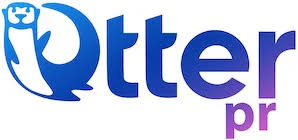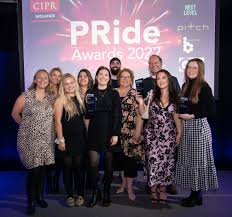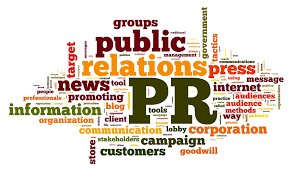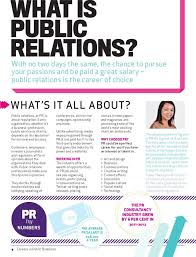Unlocking the Power of Travel Public Relations Firms in Shaping Wanderlust Narratives
Travel Public Relations Firms: Shaping the Narrative of Wanderlust
In the fast-paced world of travel and tourism, public relations firms play a crucial role in shaping the narrative of wanderlust. These firms specialise in promoting destinations, hotels, airlines, tour operators, and other travel-related businesses to both consumers and the media.
One key aspect of what travel public relations firms do is managing the reputation of their clients. They work to create positive perceptions and build brand awareness through strategic communication efforts. This can involve securing media coverage, organising press trips, managing social media campaigns, and handling crisis communication when necessary.
Travel public relations firms also help their clients navigate the ever-changing landscape of digital marketing. With the rise of social media influencers and online travel platforms, it’s essential for travel businesses to have a strong online presence. PR firms assist in developing engaging content, forging partnerships with influencers, and monitoring online conversations to ensure their clients are seen in a positive light.
Another vital role that these firms play is in fostering relationships with journalists and media outlets. By maintaining strong connections with key members of the press, PR professionals can secure valuable coverage for their clients in top-tier publications, travel blogs, TV shows, and more. This earned media helps to increase visibility and credibility for travel brands.
Overall, travel public relations firms act as storytellers for the travel industry. They craft compelling narratives that inspire wanderlust, showcase unique experiences, and drive consumer interest. By leveraging their expertise in communication strategy and media relations, these firms help their clients stand out in a crowded marketplace and connect with travellers around the world.
7 Essential Tips for Maximising Success with Travel Public Relations Firms
- Understand the target audience and tailor messaging accordingly.
- Build relationships with key media contacts in the travel industry.
- Create compelling storytelling to generate interest and coverage.
- Utilise social media platforms effectively to reach a wider audience.
- Monitor industry trends and news to stay relevant and proactive in PR efforts.
- Offer unique experiences or angles to differentiate clients from competitors.
- Measure the success of PR campaigns through metrics like media impressions and brand sentiment.
Understand the target audience and tailor messaging accordingly.
To succeed in the competitive landscape of travel public relations, it is essential for firms to understand their target audience and tailor messaging accordingly. By conducting thorough research and analysis, PR professionals can gain insights into the preferences, behaviours, and motivations of travellers. This knowledge allows them to craft messaging that resonates with the target audience, captures their attention, and ultimately influences their decision-making process. By aligning communication strategies with the interests and needs of travellers, travel public relations firms can create impactful campaigns that drive engagement and build lasting relationships with consumers.
Build relationships with key media contacts in the travel industry.
Building relationships with key media contacts in the travel industry is a fundamental tip for travel public relations firms. By nurturing strong connections with journalists, editors, and influencers, PR professionals can secure valuable media coverage for their clients, enhancing brand visibility and credibility. These relationships enable PR firms to pitch compelling stories, share exciting travel experiences, and position their clients as industry leaders. Through consistent communication and collaboration with key media contacts, travel PR firms can amplify their clients’ messages and reach a broader audience of travel enthusiasts.
Create compelling storytelling to generate interest and coverage.
Creating compelling storytelling is a powerful tip for travel public relations firms looking to generate interest and coverage for their clients. By crafting engaging narratives that resonate with audiences, PR professionals can capture attention, evoke emotions, and inspire action. Through storytelling, travel brands can differentiate themselves, create memorable experiences, and build strong connections with consumers. This approach not only helps in securing media coverage but also in fostering brand loyalty and driving engagement in the competitive travel industry.
Utilise social media platforms effectively to reach a wider audience.
To maximise outreach and engagement, it is essential for travel public relations firms to harness the power of social media platforms effectively. By strategically utilising platforms such as Facebook, Instagram, Twitter, and LinkedIn, these firms can expand their client’s reach to a broader audience. Engaging content, targeted advertising, influencer partnerships, and community management are just a few ways in which PR professionals can leverage social media to amplify brand visibility and connect with travellers worldwide.
Monitor industry trends and news to stay relevant and proactive in PR efforts.
Monitoring industry trends and news is essential for travel public relations firms to stay relevant and proactive in their PR efforts. By staying informed about the latest developments in the travel industry, PR professionals can anticipate changes, identify opportunities, and tailor their strategies to meet the evolving needs of their clients. Keeping a pulse on industry trends also allows PR firms to position their clients as thought leaders and innovators, ensuring that they remain competitive in a dynamic and fast-paced sector. By proactively monitoring trends and news, travel PR firms can stay ahead of the curve and deliver impactful communication campaigns that resonate with target audiences.
Offer unique experiences or angles to differentiate clients from competitors.
To stand out in the competitive landscape of travel public relations, it is essential to offer unique experiences or angles that differentiate clients from their competitors. By crafting distinctive narratives and showcasing exclusive opportunities, PR firms can capture the attention of both media outlets and consumers. This approach not only helps to create a memorable brand identity but also positions clients as innovative leaders in the travel industry. Emphasising these one-of-a-kind aspects can set clients apart, generate buzz, and ultimately drive engagement and interest in their offerings.
Measure the success of PR campaigns through metrics like media impressions and brand sentiment.
To gauge the effectiveness of their PR campaigns, travel public relations firms should utilise key metrics such as media impressions and brand sentiment analysis. By tracking the number of times their client’s content is seen in the media and assessing the overall sentiment towards the brand, PR professionals can gain valuable insights into the impact of their efforts. Monitoring these metrics allows firms to adjust their strategies, refine messaging, and demonstrate tangible results to clients in the dynamic world of travel communication.












